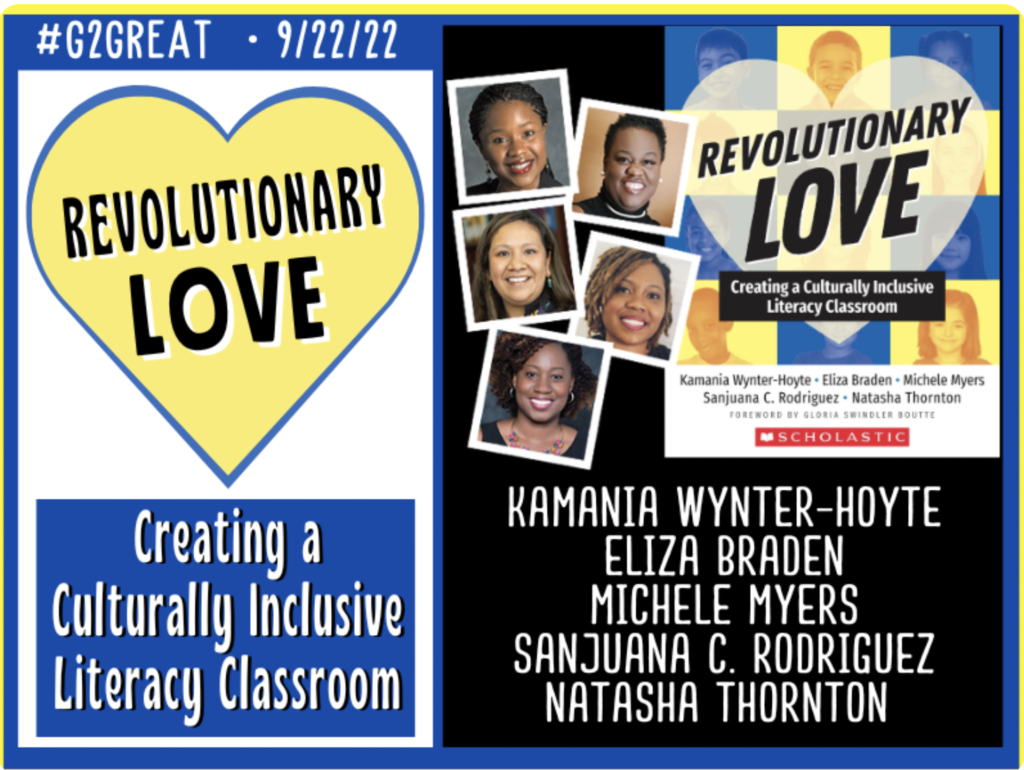
By Brent Gilson
For an archive of the chat check out the wakelet here
I wanted to start this chat by pointing out the importance of creating classrooms that are culturally inclusive and more specifically that are safe spaces for Black and Brown students. In an education landscape that is steeped in whiteness and white supremacy, I think it is important to mention that I am still learning and currently work in an area that has a very small amount of students that are of the global majority. I think that makes this responsibility to create these loving spaces all the more important but I am also acknowledging that I am not an expert, just a teacher doing his best to learn and getting a chance to reflect on a beautiful chat.
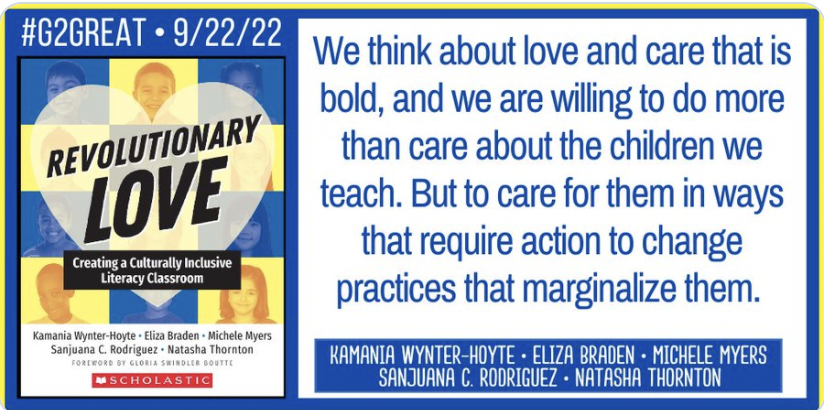
I was thinking all week about how I might be able to talk about the importance of creating culturally inclusive literacy classrooms. How I could authentically share the message of the authors and the chat participants. Ultimately I settled on a bit of personal reflection and sharing the wisdom and love that permeated through our chat last Thursday.
As a teacher in a largely white area, I often try to utilize the brilliant scholarship of Black and Brown (mostly women) educators. Often times we see the same ideas repackaged, given a new paint job and a new edition, and sold as new ideas. This is not the case in the work of those I and so many others learn from.
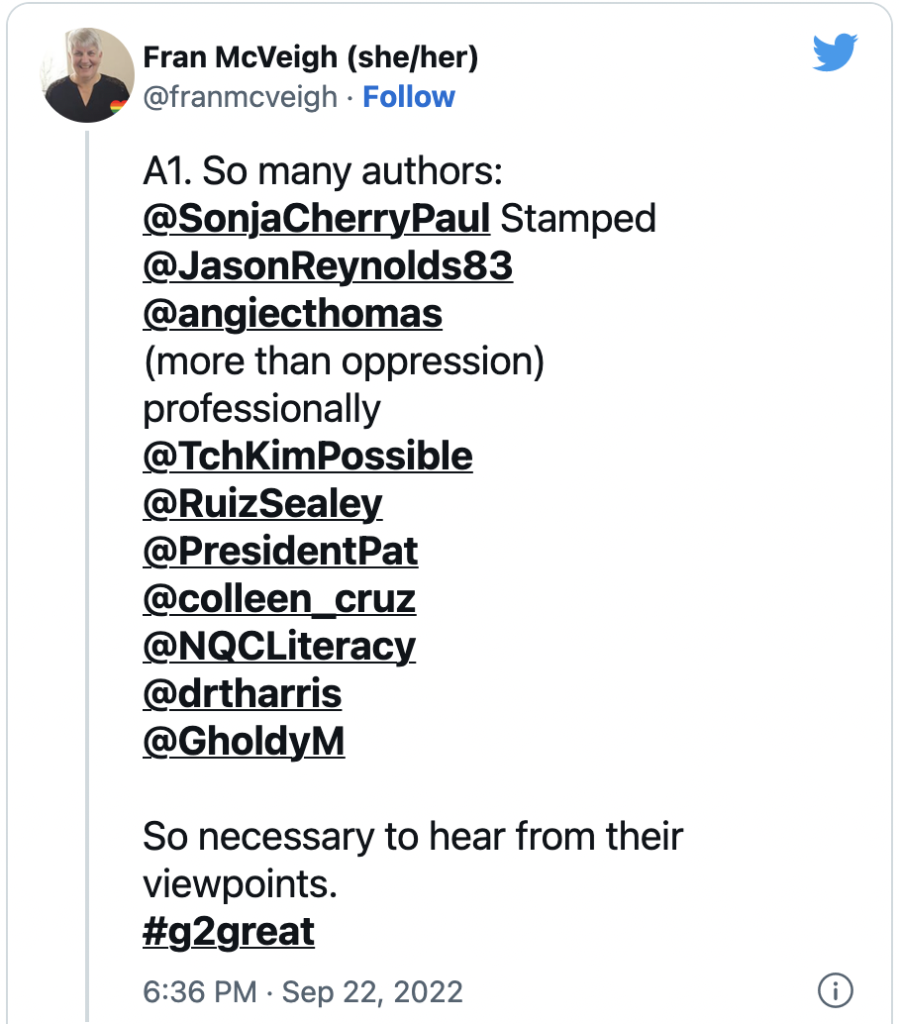
In my own classroom the work of Black women scholars like Lorena Germán, Dr. Gholdy Muhammad-Jackson, Dr. Sonja Cherry-Paul, and Dr. Kim Parker all weave through the work we do. The words of Dr. Muhammad-Jackson cover the actual walls as I try to help all of my students see the geniuses that they are. While their scholarship came about to create learning spaces to celebrate Black and Brown children and their culture and identity their work is also rich pedagogy that benefits all students. As the chat with the authors of Revolutionary Love moved forward the thought that this work would have the same kind of impact in any classroom. Creating classroom spaces that honour and respect student cultures, and that are anchored around love and joy are good for all students.
As the chat continued so much wisdom was shared
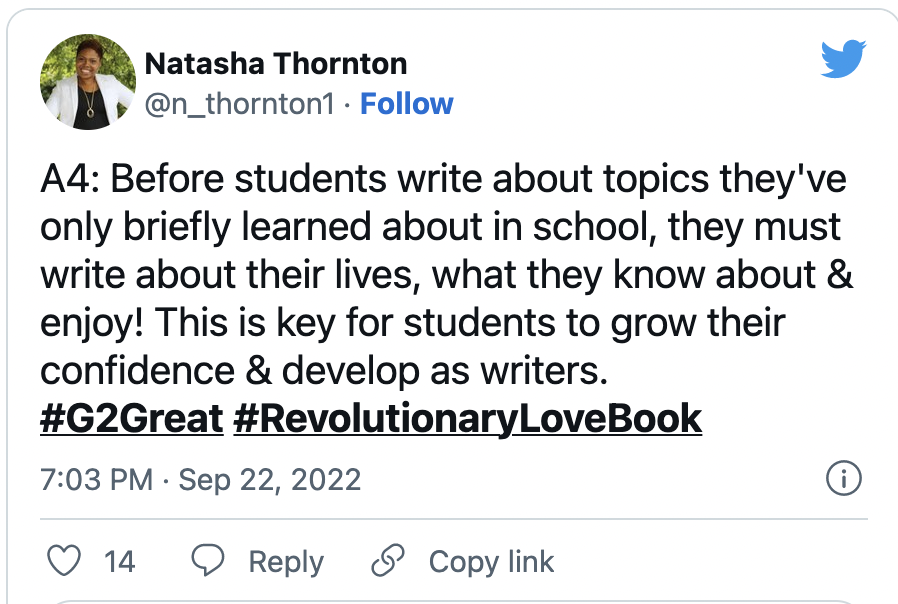
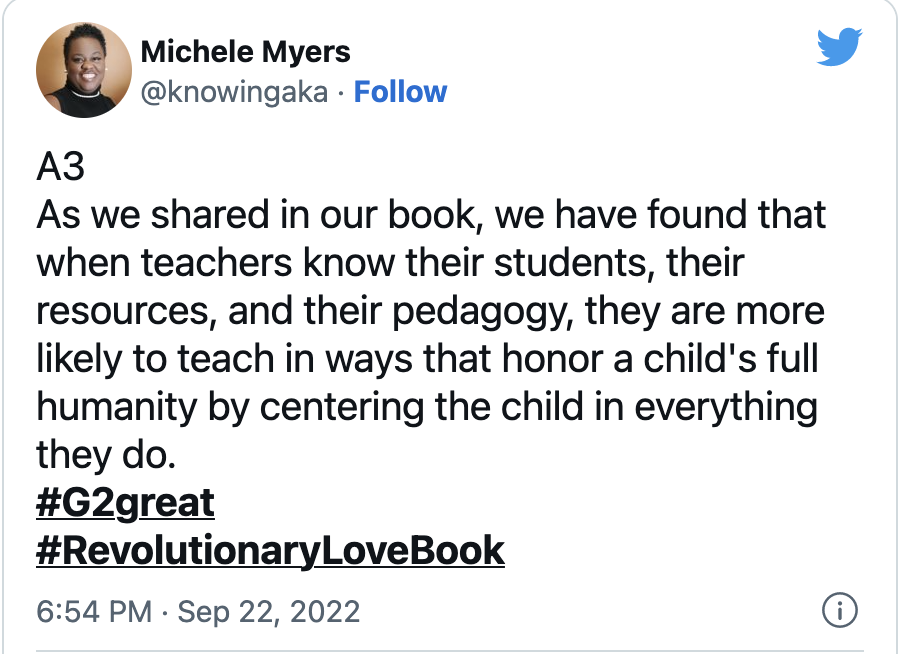
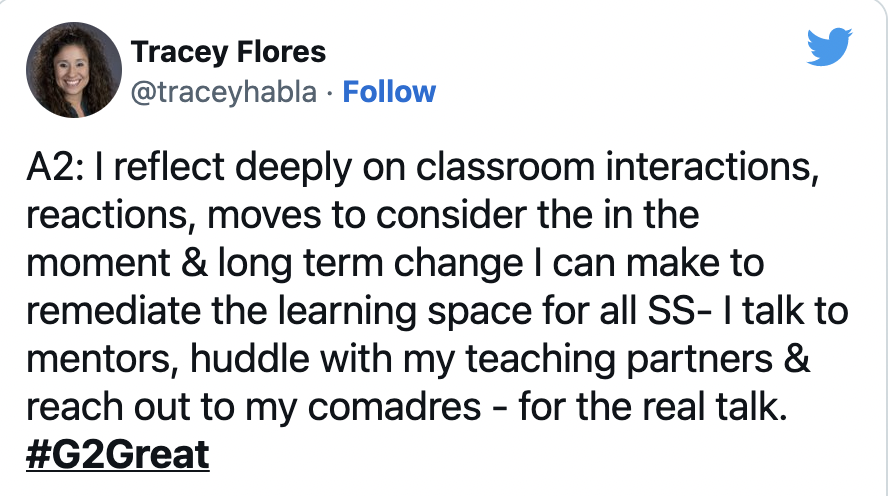
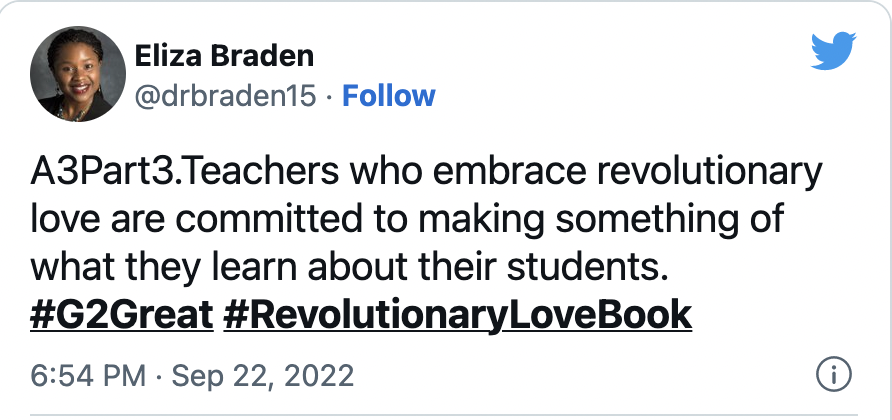
“Committed to making something of what they learn about their students. Revolutionary Love is not just a phrase it is an act. A way that we honour our students. We honor their identity—every piece of it—so that they know it is not only ok but lovingly expected that they show up as their complete self.
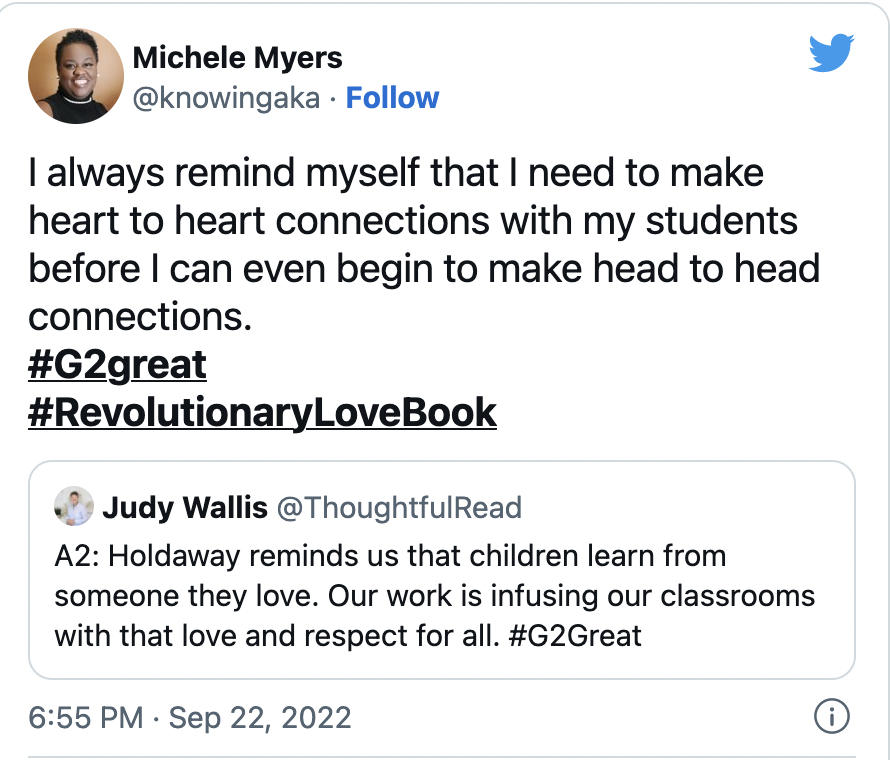
Heart to Heart Connections. This is it. Start there, the work becomes easier when our students know we care.
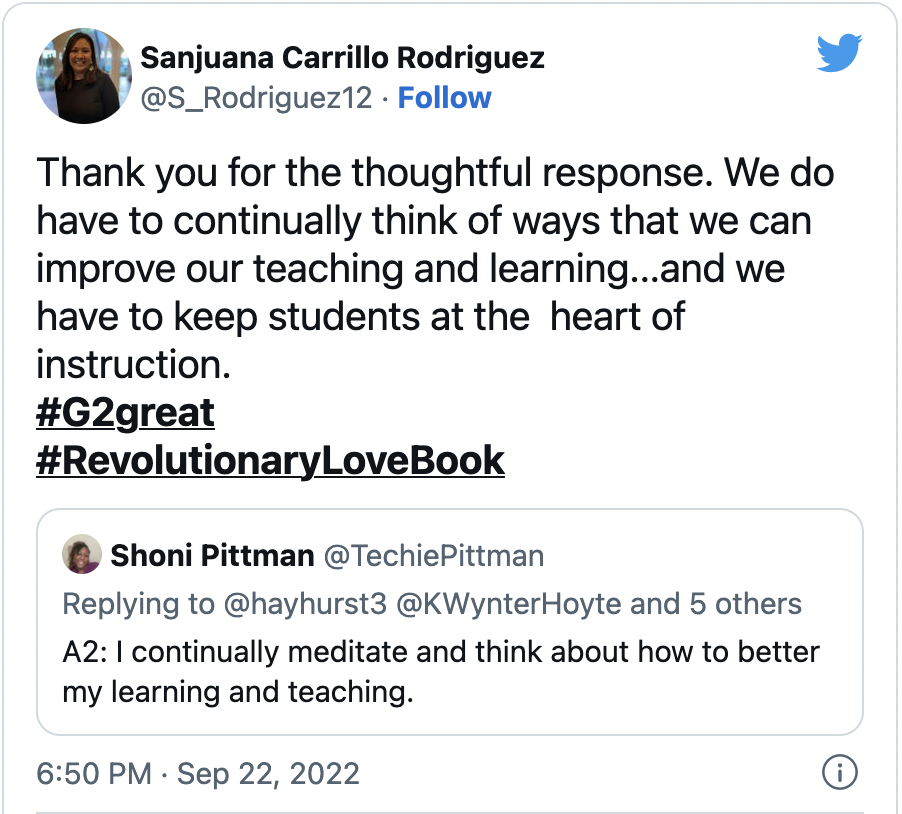
Students at the heart. Connections from the heart. Revolutionary Love. Honouring all aspects of our students.
The educational world is facing a series of storms. Book bannings, racial injustice, laws that target communities of colour, laws that target LGTBQ communities, and so many more issues. What we know however is through building communities with a foundation of love we can withstand the storm. Revolutionary Love provides us with the inspiration to do so.
I am grateful for this opportunity to reflect and to the authors for their work. If you are looking for a copy of your own you can pick it up here